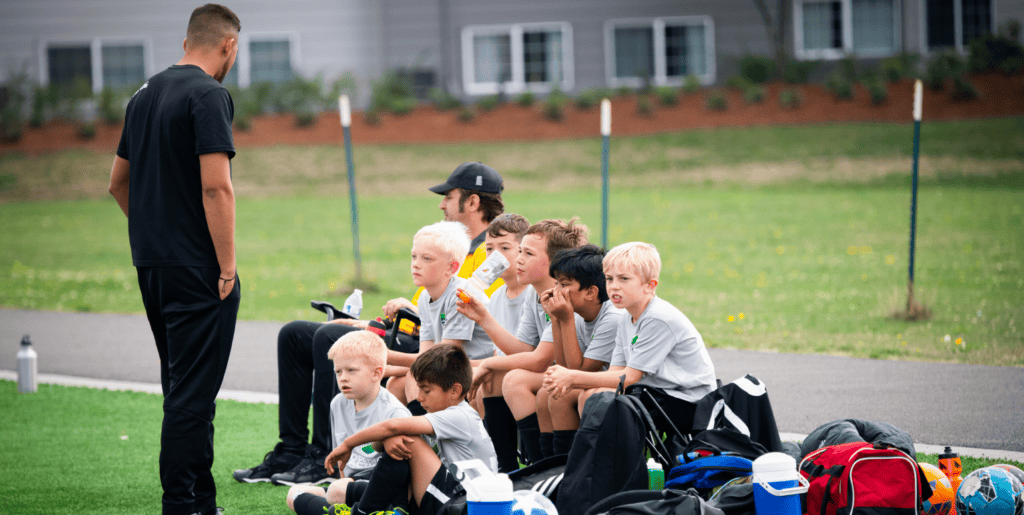PCA Resource zone
Pre-Season Meeting Agenda

A pre-season meeting is a wise investment to help get all stakeholders for your team on the same page. People tend to live up to expectations if they know them. A pre-season meeting can help establish your team culture early.
The most effective way to have your pre-season meeting is in a private setting (such as the home of one of the coaches or parents/guardians) where you can have the full attention of the group. If this is not possible, then the meeting could be scheduled before one of the first practices or games when the parents/guardians would need to be delivering their kids anyway.
Elaboration on the Agenda
Welcome and Introductions
- Coach’s background as athlete, coach, parent/guardian, etc.
- “We’re going to be spending a lot of time together so let’s get to know each other.”
- Each person share his/her best, worst or funniest personal moment in sports.
Coaching Philosophy
- Our team values
▪ Positive Youth Sports Experience
▪ Mastery/Skill Development
▪ Emotional Well-Being
▪ Behaving Respectfully - Dealing with mistakes in competition/Team Mistake Ritual
- Policy on playing time, missing practices, etc.
Goals and Hopes for the Season
- Coach’s goals and hopes
- Parents’ goals and hopes
- Athletes’ goals and hopes
Logistics
- Practice/game schedules
- Equipment
- Contacts Lists
- Other
Ask for Volunteers
- Snacks
- Rides
- Scorekeeper
- Culture Keeper
Meeting Adjourns
About PCA’s Sample Pre-Season Meeting Agenda
Below fleshes out the bullet points on page one of PCA’s Sample Pre-Season Meeting Agenda.
Welcome & Introduction. Share how excited you are about the upcoming season. Share some of your relevant background as an athlete, coach, parent/guardian, etc.
Coaching Philosophy. Share your values as a Positive Coach. Distribute the PCA Parent/Guardian Letter that covers Honoring the Game, Filling Emotional Tanks, and the ELM Tree of Mastery. Discuss these principles in your own words, asking for questions on each before you go on to the next.
Ask for parents’/guardians’ support in building a team culture that will reinforce those principles. Discuss
scenarios, such as “What if the official makes a questionable call against our team? Will you set a good example for the players and Honor the Game?”
Share your policy on playing time, missing practice, etc. If missing practice means less playing time, for example, tell parents/guardians in this meeting. You can avoid problems later by being clear now. Let parents/guardians know when and where it is best to contact you (by e-mail, at work during the day, only in evenings, etc.).
Goals and Hopes for the Season. In addition to goals such as winning games and qualifying for playoffs, consider and discuss such goals as:
- Players will love the sport at least as much at the end of the season as at the beginning
- All players’ knowledge of the sport will improve
- All players will get as much meaningful playing time as possible
- The parents/guardians will enjoy the season as much as the players.
Ask parents/guardians about their goals and hopes for the season. This may give insight into the players’ motivation. You don’t have to respond to everything right then – you can think about it and talk with parents/guardians later if they express goals that are inconsistent with your values.
Ask athletes about their goals and hopes for the season as well. Afterall, this is their experience, and they should have their voice heard.
Logistics. Make sure everyone has practice and game schedules, contact information, and equipment lists. Leave plenty of time for questions.
Ask for Volunteers. Ask parents/guardians to volunteer for any duties, such as snack coordinator, carpool arranger, scorekeeper, fundraiser or culture keeper.